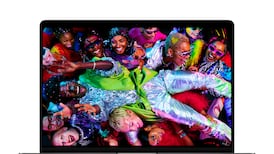NET RESULTS:With your tweets open to all there should be compulsory classes on Twitter etiquette, especially for sporting figures, politicians and celebrities
SPORTS FIGURES, politicians, celebrities. These are the three categories of people I would send off to Twitter school so they learn how to tweet. Especially to study rule number one: think before you tweet.
Hopefully rule number two would also sink into their skulls: Twitter is not a conversation in a private forum between you and a few close friends or adversaries, but a public conversation with the world in attendance, where the evidence of what you say is there for all to see. If people learned just those two things, it would save face as well as careers.
We’ve just had a two-week stretch in which hardly a day seemed to go by where someone’s Twitter comment didn’t figure in the news. Most often, it was politicians, celebrities or sports figures in hot water over a Twitter blunder.
On the up side for Twitter, it is all proof indeed of how mainstream the so called “microblogging” service is, though that term always seemed a bit ridiculous to me. A better analogy, I think, is a public texting service, especially as Twitter says more than half of its claimed 100 million regular users send their tweets from mobile devices.
“Twitter is mainstream” might seem the most banal of observations but that in itself is a sign of how fast things change. It was not long ago when many would have struggled to use “tweet” as a verb or noun in a context unrelated to ornithology, while at the same time retaining any sense of dignity.
Even a year ago, broadcasters often spoke the word “tweet” as if those quotation marks were still hanging in the air, deprecatingly, around it.
Now Twitter has passed over the Google Line. The Google Line is a barrier a term crosses, the point at which you don’t feel like an idiot using a tech service-become-verb in a sentence.
Google is the benchmark term. These days, we all casually throw around “google” as a verb and never fear a listener will snigger. Hard to believe, but it was not always thus. For a long time, people “looked something up on Google”, they didn’t “google something”.
Mass public verbing of a tech service proclaims mass market success like nothing else. And it only happens selectively, for reasons I’m sure could fill an academic paper.
For example, consider who among us routinely “yahoos”? And that’s despite the one-time advertising campaign asking if you did? Yet that service has been around longer that Google, and has been used by hundreds of millions of people all over the world.
Yet, we Facebook. We google. And we tweet.
Which brings us back to Twitter and its relentless permeation of the social fabric to the point where it is so well-watched, so widely participated in that a gaffe tweet can cost a person a job, a contract, respect, a vote, a fanbase.
Interestingly, despite Facebook’s vast reach, and the fact many people post regular updates and comments there, it isn’t Facebook posts, but Twitter and those rogue tweets that hit the news.
The reason why is surely connected to Twitter’s text-like features (not its “microblogging” self-description). As with a text message, you can write a tweet in a few seconds and send it in less than one. It’s often right there on your mobile, too. It doesn’t require the time, thought and commitment of a blog post.
Its 140-character brevity encourages amusing and creative quips, one of the joys of the form, as well as pithy observations.
On the flip side, the speedy, simple format is a helpful midwife to hot-headed reactions and ill-considered comments. Put downs also can be fast, brief and devastating.
But unlike email or a personal text, sent from one person to another, those comments are free in the digital wild, once tweeted.
You can actually remove a blunder tweet from your personal Twitter timeline when you realise it was a big mistake, but by then it’s too late. It’s gone to all your followers, who themselves might have retweeted it, sending it further on its way in a geometric progression of embarrassment, shame and stupidity.
So no wonder we keep seeing tweets in the news. Exchanges that would once have remained between the two people involved in a dispute, observations that would once have been viewed only by a select few, now essentially go to us all and stay in the public domain.
All of which creates headlines, makes tweet-watching a form of entertainment and can make for some unexpected insights into what public figures are actually like, beyond the carefully spun and managed public persona.
But some of the time, you just wish those users had taken a bit of time to understand the service and the implications of its use a bit better. And taken a moment, just one little tiny brain-engaged moment, to think before they tweeted.











